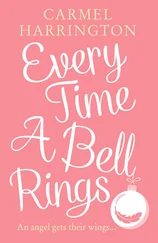People ask what worries me most, and I say the fear isn’t really sorted out that way. I wake and retrieve the pressure I shed in my sleep. I keep checking on him and expecting things of him. My Bluebird, a grumbling stump, his hands hid, his mouth shut, convinced all of this something is a nothing. My eyes jangle, my cheeks dry and show lavish tilts of salt. Every day more and more crashes into the walls. I want to go too far, I want a neon sign to let me know this is worth waiting for.
The Colleens cruise their shadows again along the window-sills, discriminately in the nightshade alone. They peek in. The Colleens, though? You won’t see them back. They deviate from any usable light. Their straight golden hair stretches artfully over one eye like an invisibility cloak. A band of pretty girls, unnaturally menacing, becomes unnoticeable. Their fingers spin at their waists like Turing machines. The equation is never solved; the digital dervishes gain speed.
Piloting these Colleens is a gentle North Light, dispatching them like the couriers of some repeatable secret message. Again and again they meet the approach of the night but never recognize the falling of the watery darkness as a stop sign. The calm and legible way the Colleens ride their feet through the evening presents them with the immense time hidden in sleep. Good hour after hour takes them on mental journeys. Every bit of their interiors has been raided, and so they wander like the Burghers of Calais, willing yet not wanting to give themselves for the good of the people. The Colleens want, without pursuing their desire, to wear the hats of others but proceed not able to recognize anything beyond the pattern of steps they take.
The Colleens shepherd the night into each small town, and when it is safe, when a sufficient amount of time has passed, the light will brutalize familiar streets again.
We is preoccupied and headless. We takes the open invitation of mirrors and stares without eyes and the pressure thins to a prop. We wheels the piano into sun showers and watches the warp and hustle. We pains and flashes with strange gestures. We cannot be love that works. That suicide be stopping in a residual and curtsying way: it are cute like thumbs and nipples and unexpected swelling. We bites your will like a ball of wool. Your body flood us and we rocks and fogs, delivering. The climate outside our body are a busy woman. We takes a nap every hundred feet. The silence realizes again and we is water-hungry. We drinks our brothers and the frame are everything we can’t forgive, driving and tricky. We likes your language with exceptions. We clicks and zippers through this light rain. You can memorize our mind in one go. We kittens down empty roads like old winter. There is floods and glass eyes and nothing that resembles what you knows to look for in the middle of the day. We cushions your head, delicate and crested. Desire wills itself through muscle and moist dreams dusts our arteries. We started out less human than this. Our lips was pink and amphibian. No bruise is as real as the one wrought by the engine in our chest. Ruthless green interruptions truth my starving blood. Instead of “we am,” say “we will.”
The Direction of Forgetting
To travel the incense road requires a man to lay down his longing in favor of the will for adventure and wealth. He must put aside the scents of his lover and let the turmeric grow comfortable deep in his lungs, easy as breath. One must prepare to find threads of saffron clinging to his cloak and pluck them thoughtfully away, as if they were strands of his wife’s golden hair.
In Java I lose the details of my wife’s skin when I plunge my hands deep into a sack of weaver bird feathers. I trade, with a plastered urgency, a surplus of cinnamon we’d been carting since Aden for the sack of plumage.
That night, in my inner cabin room, I examine one of the bright quills carefully, stroking it against the grain, and wedge it into the band of my hat. A shipmate summons me with a bald knocking — the rats have cracked a barrel of wormwood and are stumbling about the hold. They’ve become emboldened, are approaching deck hands with curious noses and mouths. I go to examine the ravaged barrel, slats splayed out like so many petals of some stiff flower, and find a quiet cricket whose heart has seized from just a lick of the stuff. In time the rats will drown themselves with their confusion, but in the meantime I watch to make sure they don’t ravage more of our store.
In Al Bayda we pick up an extra cask of gentian so that we might make bitters on the ship: to aid in digestion, to pour down the throats of the seasick, to doctor our drinks.
In a Somalian market I pick up a banana with my left hand. In India, I say the word “no.” In Yemen, I grasp the sleeve-covered wrist that a woman offers to me in greeting. Once word has spread of our presence, every passable window’s shade is drawn, every child is yanked inside. There is no telling what will be traded next. It seems impossible to behave ourselves. It is certain we’ll offend some subtle complexity of etiquette.
In Piraeus we ask for fennel by its Greek name. “Marathon? Marathon?” We say the word to each market vendor until someone nods. It was a stalk of fennel that Prometheus used to steal fire from the gods, and when the vendor botches the exchange rate, giving us ten dozen potted fennel plants for the price of five, we feel as triumphant. Sailing out of port that night we are glad not to be chained to a rock, having our liver devoured day after day. We do not, however, escape unpunished. Within a fortnight a flutter of mouse moth larvae have hatched from the soil of the plants, and tug bites out of our woolens. They hover densely around our candles, casting the ship into unsolvable darkness.
The barrels and sacks of seed and silk, the burlap wrapping the roots of the seedlings form a pulpy poetry all their own, and on days at sea, the light shining into the hold from punched-out knots in the wood allows me to read the names stenciled on each vessel. My wife’s voice rings through my head, sounding the fractured lineage of our cargo: frankincense from the land of Punt, Pippali from Kerala, sweet wood from Indonesia, amomum from Bengal. My eyes land on a bale of myrrh and I think of Berbera, where we were shown the purposeful wounds inflicted on commiphora trees to draw out the resin. All so that once we returned home our worship would have a scent all its own. In time, my wife’s voice becomes dead and still in my memory. I can hear only the sounds of foreign birds made familiar over time and the many names of one spice in the disjointed language of the markets. Cinnamon, cassia, róu gúi, cannella: they all mean the same.
When the ship’s stays start to creek with the weight of our supply, we turn around. I pace the decks trying to remember my wife’s name, and thinking of how to ask for forgiveness if it won’t come to me. When I attempt to look back on the life that waits for me at home, the mirror reflects only on the smell of the lurching sea and the crisp-sounding snap of an aloe leaf, split and oozing focus onto my relief. I’d grown sunburned and bristled in a way that would not be familiar to her on my return. But even with as much as I’d changed, and even having lost the details of her entirely, I assumed that nothing about my wife would be different. I was sure that when I walked through that same old door, the recognition would crescendo between us and the scent of her skin would break through the curry powder and thyme and ginger, and her gentle smile would cause me to begin forgetting in the opposite direction.
Читать дальше












